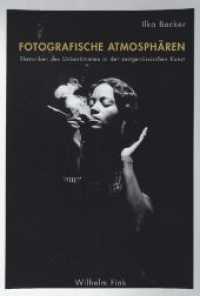- ホーム
- > 洋書
- > ドイツ書
- > Mathematics, Sciences & Technology
- > Medicine & Pharmacy
- > general survey & lexicons
Full Description
His defence of "hardy" egalitarianism aims to show that random selection by lottery can affirm both a common humanity and the equal value of lives.







